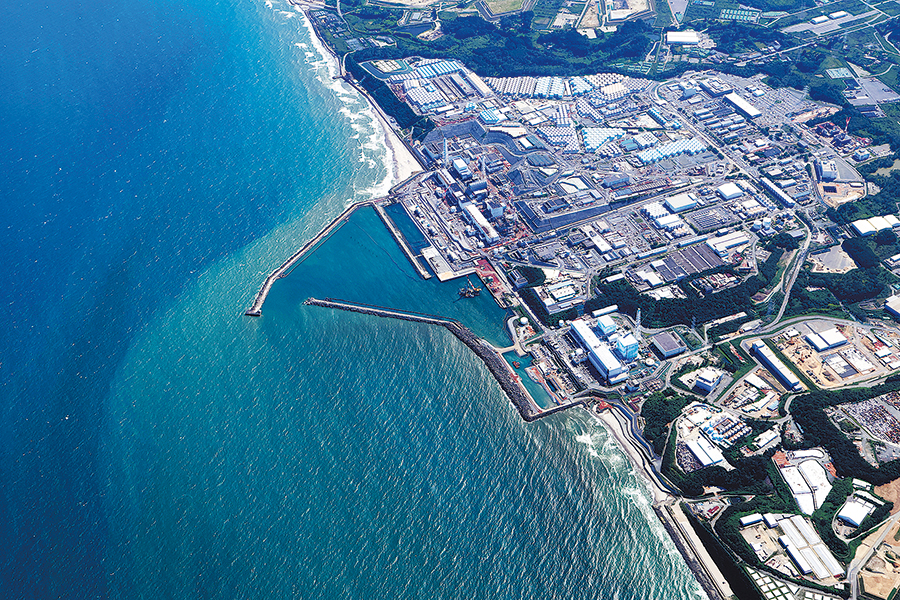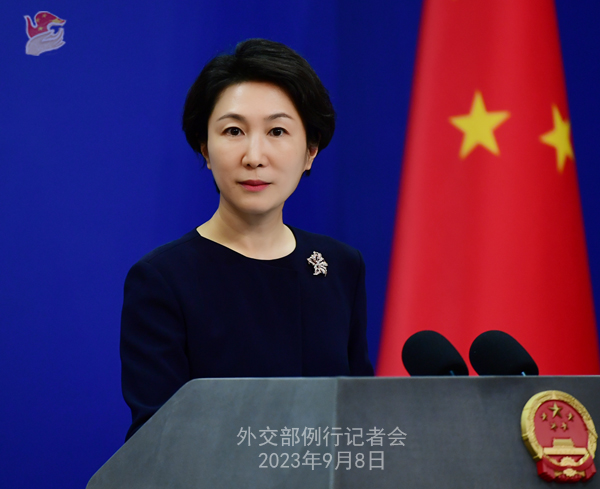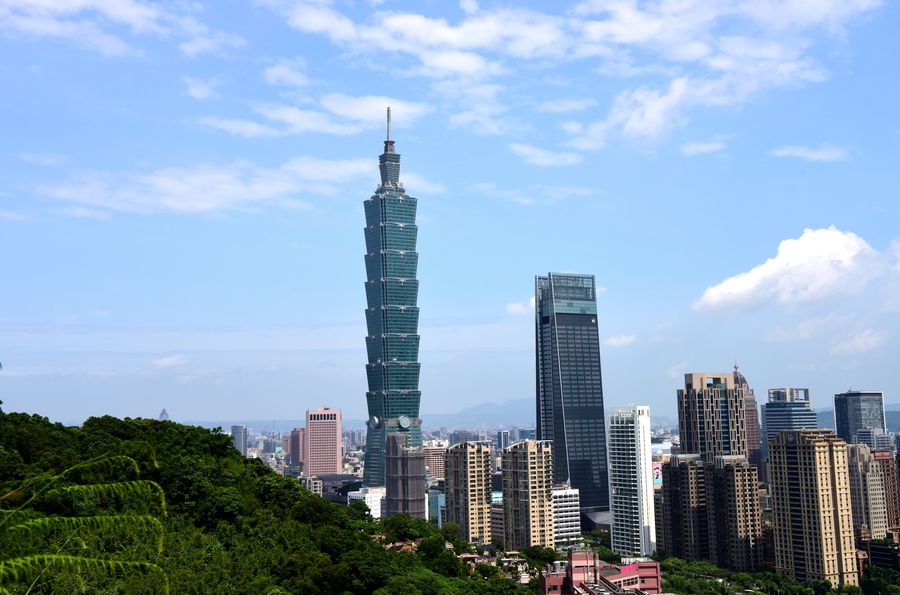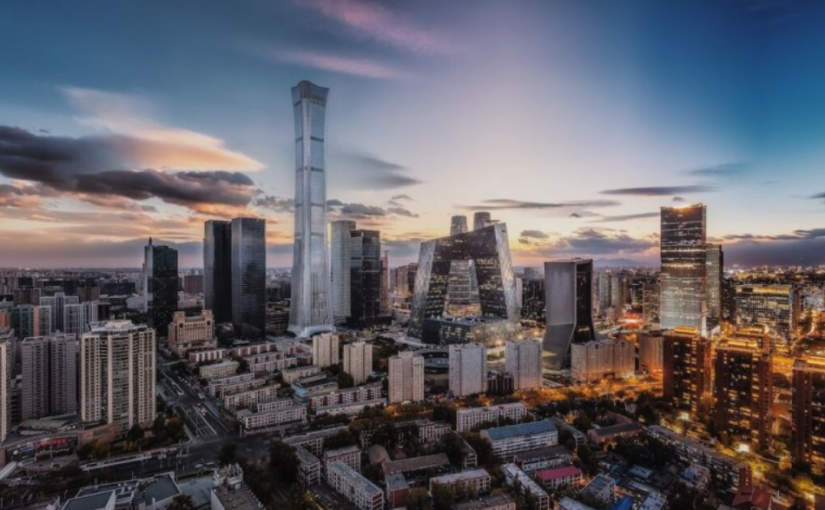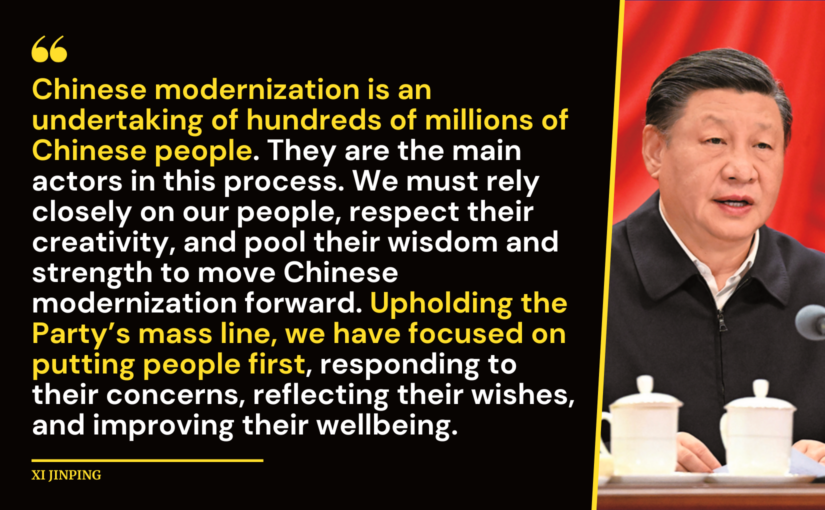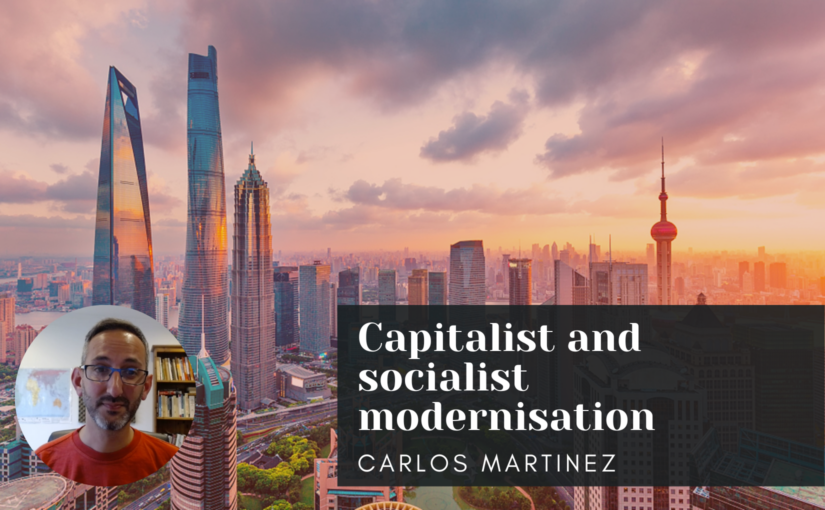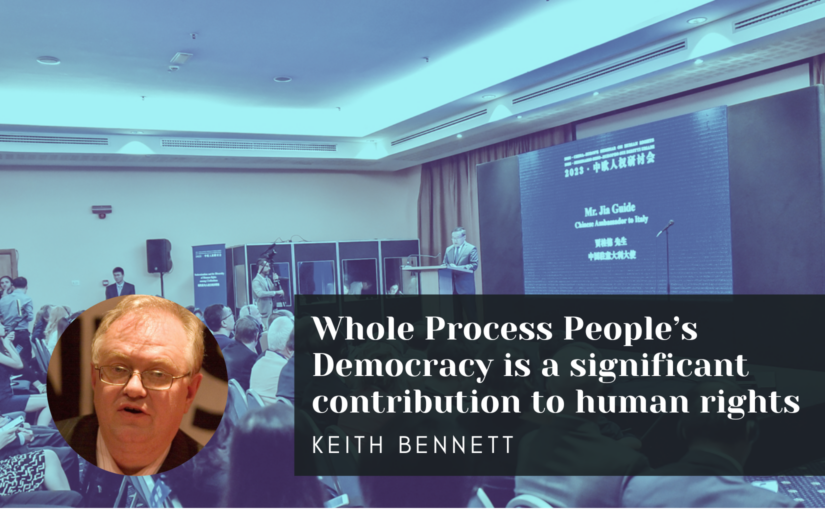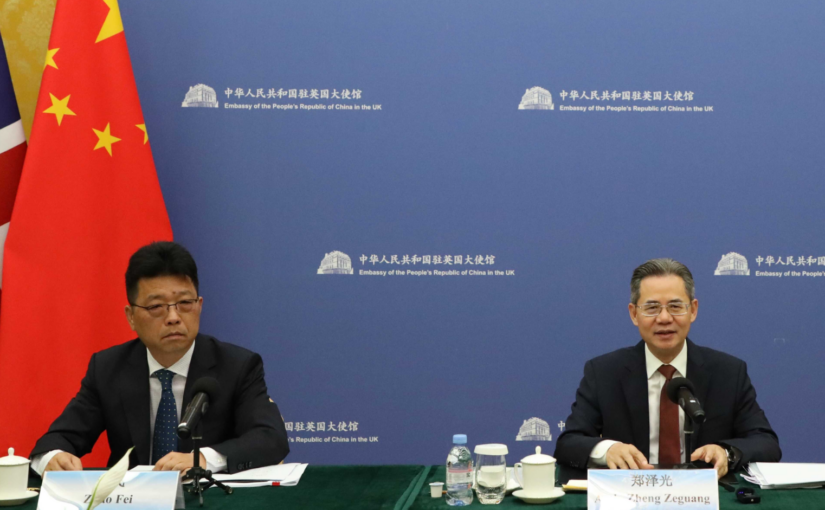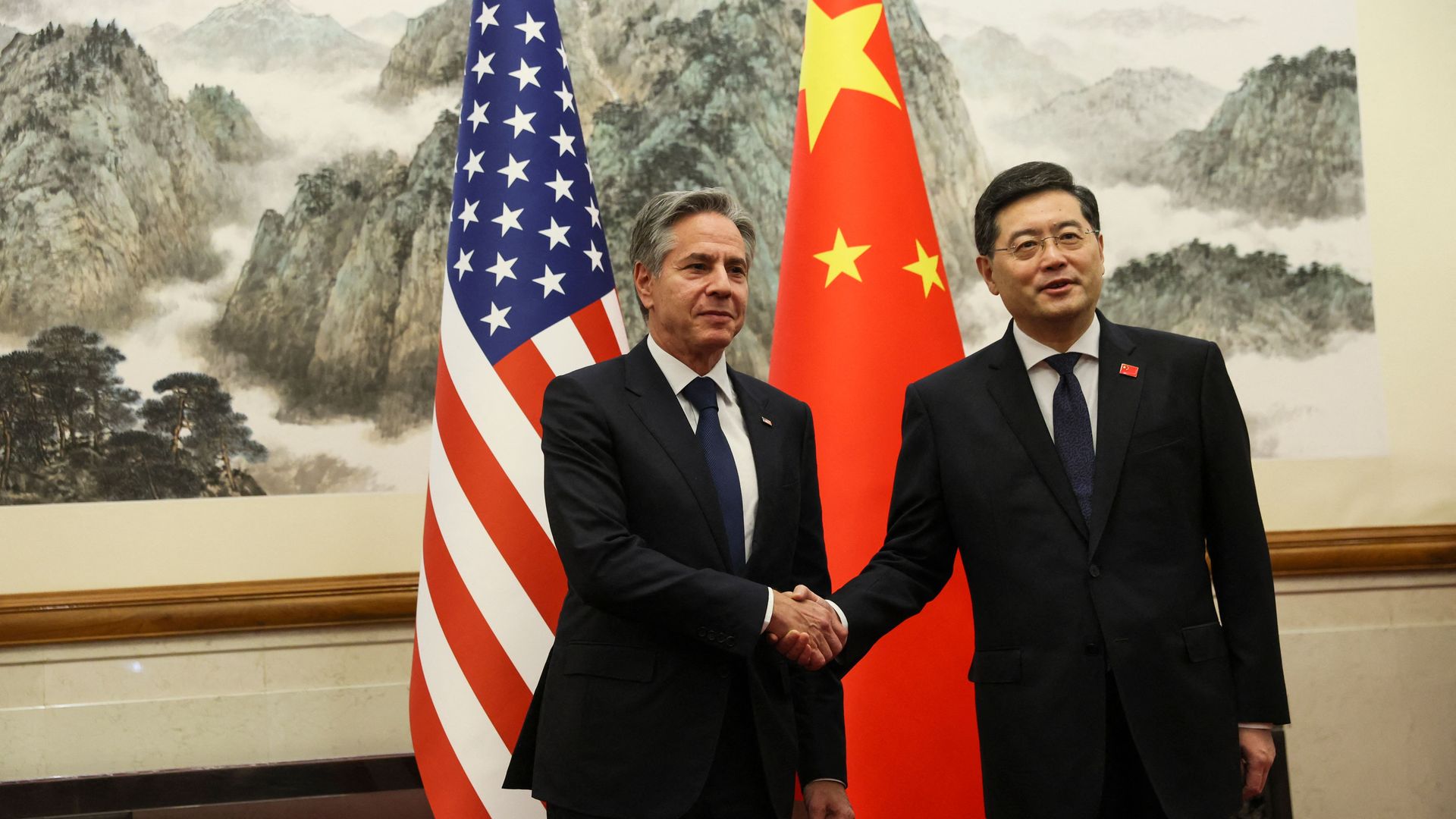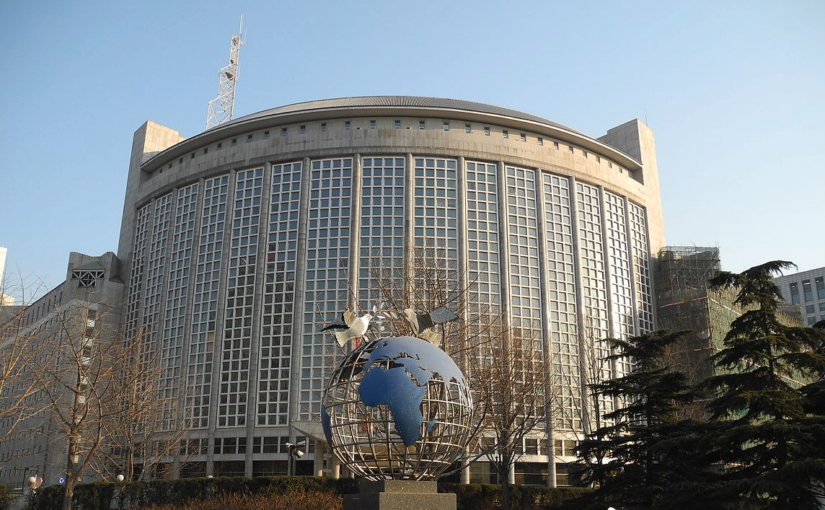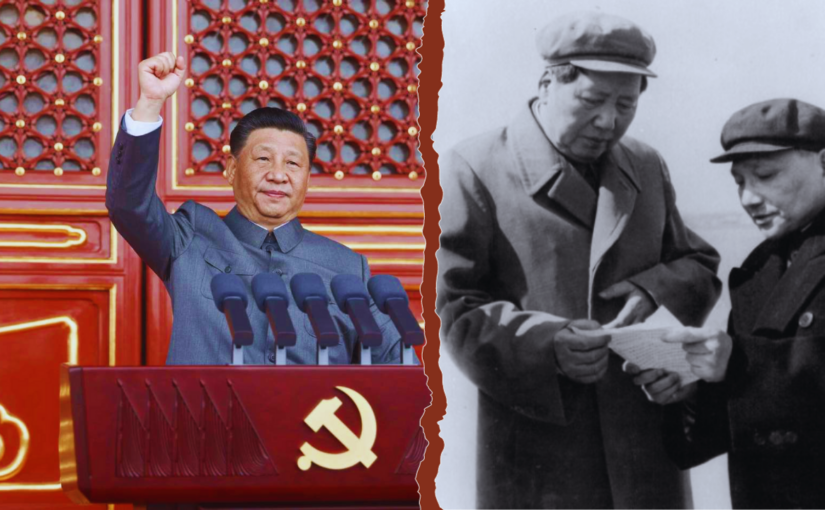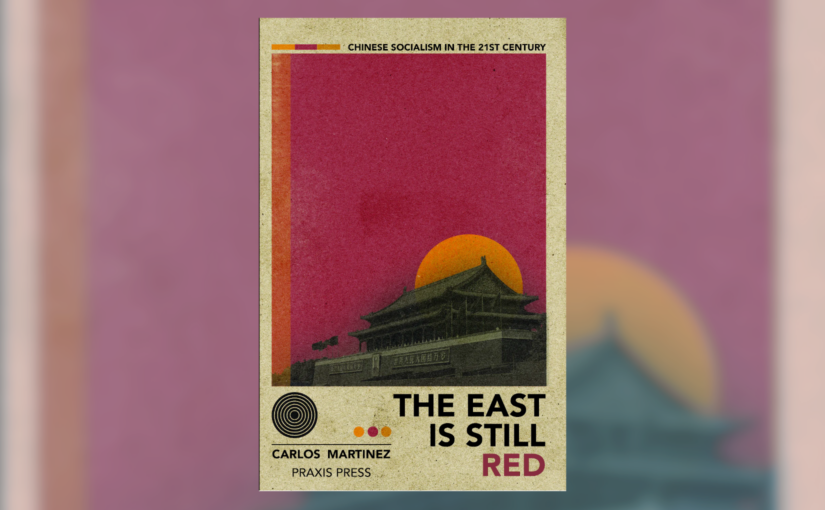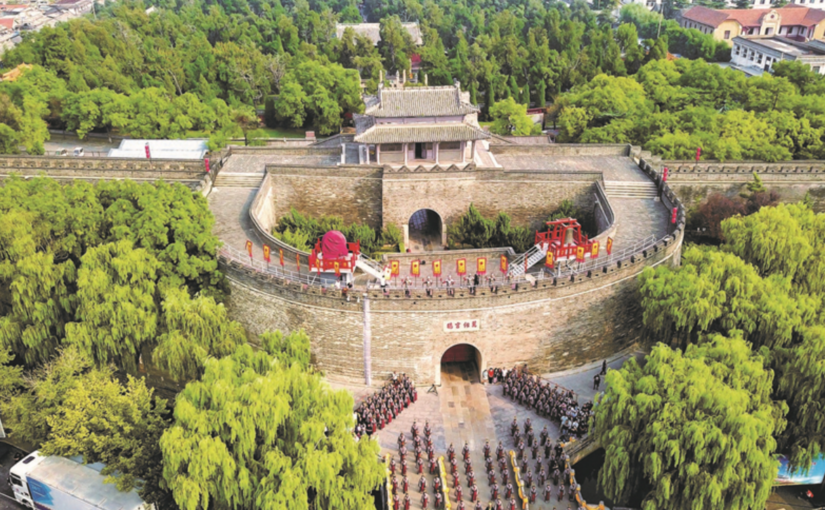
The news is full of headlines about ‘China’s economic collapse’ — ignore them
By John Ross (Posted Aug 31, 2023)
Originally published: Morning Star Online on August 2023 (more by Morning Star Online) |
IN THE last four years, covering the period of the Covid pandemic, China’s economy has grown two-and-a-half times as fast as the U.S., 15 times as fast as France, 23 times as fast as Japan, 45 times as fast as Germany, and 480 times as fast as Britain.
To add in smaller G7 countries, China has grown four times as fast as Canada, and 11 times as fast as Italy.
China’s outperformance of advanced capitalist countries is even greater in per capita terms–a still better measure of productivity changes and potential for increasing living standards.
China’s per capita GDP grew three times as fast as the U.S., five times as fast as Italy, 44 times as fast as Japan or France, and 260 times as fast as Britain–while per capita GDP fell in Germany and Canada.
China’s outperformance of developing capitalist countries shows the same pattern–China’s per capita 4.4 per cent GDP annual average growth compares to 2.6 per cent in India, 1.3 per cent in Brazil, or 0.9 per cent in South Africa.
What is important about such economic growth, of course, is not abstract statistics but its meaning for the real lives of ordinary people.
The International Labour Organisation data on real, inflation-adjusted, wages shows that up to the latest available data–for most countries to 2022, and for India to 2021–China’s annual real wage growth was 4.7 per cent.
For Britain it was 0.1 per cent, for the U.S. it was 0.3 per cent, in France it was minus 0.4 per cent, in Germany minus 0.7 per cent and in India minus 1.3 per cent.
Given this enormous economic outperformance by China of capitalist countries, any rational discussion that should be taking place in Western mainstream media about the international economic situation would be, “why is China’s economy hugely outperforming the U.S. and the rest of the capitalist West?” and,
what lessons are to be learned from China’s socialist economy that is so outperforming the West?
For the left, the issue that needs to be assessed and publicised is,
Why are real wages rising 18 times as fast in China as in the U.S., 44 times as fast as in Britain, while in France, Germany or India real wages are falling?
Indeed, the present author would argue that much greater stress should be placed on the latter point. The international left has begun to absorb that China has lifted more than 850 million people out of World Bank-defined poverty in 40 years–by far the greatest poverty reduction achievement in human history.
But it has not yet internalised how rapidly not only the poorest but average living standards are rising in China–far faster than in any Western country.
But, of course, this real economic situation can’t be discussed in the mainstream media, because its conclusions would be too damaging for the capitalist West.
Instead, a type of mad discussion is unfolding, with U.S. claims about China’s economy becoming increasingly bizarre–one might say deranged–as they get further and further out of touch with reality.
President Joe Biden, for example, recently made a speech claiming China’s economic growth rate is “around 2 per cent,” when it was 5.5 per cent in the first half of this year and, as already noted, China’s economy is growing two-and-a-half times as fast as the U.S.
Biden bizarrely claimed that in China “the number of people who are of retirement age is larger than the number of people of working age”–entirely false, and inaccurate by a figure of many hundreds of millions of people.
Discussion in the U.S. financial media equally refuses to face real facts. Because I am an economist, every morning, after the overall news, I switch on Bloomberg TV to catch up on the latest economic data. Discussion there is like Alice Through the Looking Glass–the book the principle of which is that everything is reversed compared to the real world.
Apparently, according to Bloomberg’s analysis, China’s annual average of 4.5 per cent a year growth in the last four years is an economy in severe crisis, whereas the US’s 1.8 per cent is allegedly strong growth–not to speak of Britain’s 0.1 per cent. Similar rhetoric, out of all contact with factual reality, pervades the Financial Times, The Economist, or the Wall Street Journal.
The left is well used to such U.S. political lying–the completely fake claim that North Vietnamese ships attacked U.S. naval vessels on August 4 1964 in the Gulf of Tonkin, used to launch the Vietnam war, or the equally untrue claim that Iraq had weapons of mass destruction to justify the U.S. invasion, were classic examples.
Today, the U.S. systematically lies about the state of China and its own economy because it is crucial for U.S. capitalism to prevent its own citizens, and close allies, from understanding the real economic trends.
It is further proof, if one were needed, of the truth that if the real world and a theory do not coincide only one of two things can be done. One is to abandon the theory, the other is to abandon the real world.
In this case, the theory is that the U.S., because it is capitalist, should outperform socialist China. The real world is actual economic performance–in which China continues to outperform the U.S. and other capitalist countries by an enormous margin.
Unable to abandon its theory the U.S. is therefore forced to abandon the real world–hence the demented denial of comparative economic performance noted at the beginning of this article.
While the left should expect lies from capitalism what is rather shameful is that some sections of the left repeat such nonsense–apparently believing that if they put in a few left phrases into an analysis taken from the Western press this constitutes “socialist” commentary.
For example, an article in the New Left Review’s Sidecar called China a “zombie economy.” Some “zombie” when China’s economy is growing anywhere between two-and-a-half times and 480 times as fast as any major capitalist economy.
The real data shows the reality is simple. China has far outgrown any Western capitalist economy for more than 40 years. It continues to do so.
The result in China is by far the world’s most rapid rise in living standards–not only for the poorest but for the whole average population. It is known as the practical advantage of socialism. It is fact. We know why the U.S. has to make up big lies about it. There is no justification for sections of the left echoing them.
https://mronline.org/2023/08/31/the-new ... nore-them/

Taiwan’s Vice President William Lai, left, chats with Ingrid D. Larson, managing director of the American Institute in Taiwan/Washington Office upon arrival in New York, Aug. 13, 2023. (Photo: Taiwan Presidential Office. Editing by MintPress News)
Documents show Taiwan working with FBI to prosecute Chinese Americans, intimidate U.S. politicians
By Alan MacLeod (Posted Aug 30, 2023)
Originally published: MintPress News on August 18, 2023 (more by MintPress News) |
Amid a controversial visit from Vice President William Lai (the front-runner to be his country’s next leader), official documents reviewed by “MintPress News” show that the Taiwanese government is attempting to drum up anti-China hostility, influence and intimidate American politicians and is even working with the FBI and other agencies to spy on and prosecute Chinese American citizens.
Key points of this investigation
Taiwanese officials are monitoring Chinese Americans and passing intelligence to the FBI in attempts to have them prosecuted.
Taiwan is working with “friends” in media and politics to create a culture of fear towards China and Chinese people in the US
Taiwanese officials claim they are “directing” and “guiding” certain U.S. politicians.
Taiwan is monitoring and helping to intimidate U.S. politicians they deem to be too pro-China.
The island is spending millions funding U.S. think tanks that inject pro-Taiwan and anti-China talking points into American politics.
WORKING WITH THE FEDS TO PROSECUTE CHINESE AMERICANS
Vice President Lai’s journey to the United States is, officially, only a stopover on his way to Paraguay (the U.S. does not formally recognize Taiwan as an independent state). He is scheduled to make appearances in both New York and San Francisco.
Lai himself is an outspoken leader of the growing movement for Taiwanese independence. Many nationalists see Taiwan as culturally different from the mainland and argue it would be better off as a fully independent state. To achieve this goal, they are attempting to gain American backing and influence American public opinion. China, however, sees the matter as purely internal, and American attempts to wrest Taiwan out of its orbit as a potential trigger for World War Three.
Part of the effort to influence American politics, the cables reveal, is waging a silent war against pro-Chinese groups and directly working and sharing intelligence with the FBI and other agencies. “We should grasp the opportunity to counteract and further weaken China’s grassroots influence activities in the U.S. through adopting more offensive and lethal measures,” a cable from Taiwan’s Ministry of Foreign Affairs (MOFA) reads. The same document instructs all offices of the Taipei Economic and Cultural Representative Office (TECRO or TECO)—Taiwan’s de facto U.S. embassy and consulates—to cooperate with local law enforcement.
“We are happy to witness that some local offices have already started exchanging intelligence related to China with U.S. federal staff. All offices are mandated to keep track of China’s activities and enhance the frequency of sharing information with U.S. officials,” the Ministry of Foreign Affairs notes.
The exchanges between the different Taiwanese agencies make clear that Taiwan sees Chinese Americans as suspect and all pro-China or anti-Taiwanese sentiment expressed by Chinese Americans as possibly directed by Beijing itself.
“Chinese Americans have already adapted to the mainstream society, serving as the major channel for Chinese consulates to influence local politics, economics, culture, education and community groups. Their presence and activities pose great threats for Taiwan,” the New York TECO office wrote, which also noted that it had infiltrated some of these groups.
Earlier this year, Chinese American groups protested Taiwanese President Tsai-Ing Wen’s visit to the United States, upstaging the event. The demonstrations, TECO New York alleged, were led by the United Chinese Association of Brooklyn and the Chinese American Community Affairs Council.
Angered by this, it appears that Taiwan attempted to have these groups arrested and prosecuted as foreign agents, despite lamenting that they could find no evidence they broke any U.S. laws. As one cable noted:
The U.S. government is acutely aware that protesting and freedom of speech are guaranteed by the Constitution. Although it knows that Chinese Americans keep in constant contact with the Chinese Consulate in New York, it is quite difficult to charge them in ways that the FBI sued Chinese Americans.

Chinese Americans protest Taiwanese President Tsai-Ing Wen’s visit to the United States in New York on March 31, 2023. (Lev Radin | AP)
The plan, it seemed, was to continue to monitor pro-China groups in the hopes that they could find something actionable. As TECO New York wrote:
If we can collect clear and concrete evidence that Chinese Americans and community groups are directed by Chinese government, they will likely be prosecuted by the U.S. We are supposed to maintain the communication with U.S. law enforcement continuously, and share updated intelligence about Chinese Americans and community groups in our jurisdiction, in order to assist the U.S. to get hold of potential illegal actions by pro-China individuals and community groups.
“MintPress” approached both TECO New York and the United Chinese Association of Brooklyn for comment but did not receive a response.
The FBI has already helped create a culture of fear among Chinese Americans. For example, the agency falsely accused Professor Xiaoxing Xi of Temple University of spying for Beijing. During their investigation, the FBI unlawfully searched his house and held his family at gunpoint. Xi is currently suing the government. A survey taken earlier this year found that 72% of Chinese researchers in the U.S. felt unsafe, and most were looking into pursuing job opportunities elsewhere.
MONITORING, INTIMIDATING, “DIRECTING,” AND “GUIDING” U.S. POLITICIANS
The Ministry of Foreign Affairs also directs TECO staff to investigate and pressure American politicians who they deem too friendly with China, attempting to create a climate of fear and suspicion in the process.
Two prominent U.S. politicians the cables highlight are Governor of New York Kathy Hochul and Mayor of New York City Eric Adams. The Ministry of Foreign Affairs wrote that they should help “our allies in politics, academia and the media” to investigate their relations to China. As MOFA stated:
We should encourage our allies to probe and expose the relations between Chinese American community groups and local politicians, and employ the current backdrop skeptical of China in U.S. society, which will make U.S. citizens stay alert with pro-China politicians, and warn them to show restraint and spontaneously distance themselves from China under the backdrop.
While it is not explicitly stated how much—if any—influence Taiwan had in its publication, the documents also reference a series of hit pieces in “The National Review,” painting Hochul and Adams as suspiciously close to Communist China. One noted that Hochul enjoyed a “long-standing collaboration” with a genocide-denying Communist official who supports China’s “baseless claims to sovereignty over Taiwan.” Another article, which featured considerable FBI input, reported that both Hochul and Adams had received donations from Chinese Americans alleged to be secret police officers for Beijing.
The state of Utah has also turned into an unlikely battleground between China and Taiwan. In March, an “Associated Press” report headlined, “Amid strained U.S. ties, China finds unlikely friend in Utah” smeared a number of local politicians from the Beehive State, dubiously presenting them as in Beijing’s pocket. One legislator was questioned by the FBI after he introduced a resolution expressing solidarity with China in the early stages of the COVID-19 pandemic, while a professor advocating for closer U.S./China relations was questioned twice.

This letter from Chinese President Xi Jinping to an Utah Elementary School in early 2020 was presented as evidence of China’s malign influence in the state. (Jon Elswick | AP)
Again, it is not clear whether Taiwan had any role in the story’s publication, although we do see the FBI/media/Taiwan nexus once again appearing. What is certain, however, is that they took full advantage of it. Another legislator highlighted in the AP report quickly rushed out a statement strongly supporting Taiwan and made a number of promises to the island. Fearing being smeared as pro-China, many Utah state representatives have since joined the Utah-Taiwan Friendship Caucus. Utah has also passed a number of pieces of pro-Taiwan or anti-China legislation.
Many of these bills have been promulgated by Candice Pierucci, a Republican legislator that the San Francisco TECO office describes as a “pro-Taiwan and promising political figure.” The wording of the TECO cables suggests Taiwan might consider Pierucci as under their control or direction. “Our office has directed Pierruci to follow the trend and lobby more lawmakers to join the Utah-Taiwan friendship caucus,” TECO San Francisco wrote. “We also guided Candice to take advantage of the AP reports to enhance her media exposure on ‘AP’ and ‘Fox News’ in order to shape her as a pro-Taiwan advocate,” it added (emphasis added).
MintPress approached TECO San Francisco and Pierucci for comment but has not received a response.
INFORMATION WAR
Anti-China hostility, both among elites and in the general population, has been rapidly rising in America. A recent Gallup poll found that only 15% of respondents viewed China in a positive light—an all-time low. As recently as 2018, a majority of Americans (53%) viewed the country favorably. However, increased hostility from Washington and a barrage of negative sentiment from politicians and media outlets has seen this figure fall. Hate crimes against Asian Americans have skyrocketed.
Conversely, support for Taiwan has been rising for decades, with the same Gallup poll finding a record-high 77% of Americans view Taiwan positively. Nearly nine in ten consider the conflict between China and Taiwan—a struggle between a state and an island the U.S. officially recognizes as part of China—as an “important” or “critical” threat to U.S. vital interests. Only 10% of Americans think it is relatively unimportant to U.S. national interests.
Part of this dramatic shift in outlook is down to Taiwanese efforts to bankroll a plethora of top U.S. think tanks. A 2021 “MintPress News” study found that TECRO had given millions of dollars to many of the most influential think tanks in the United States, including the Carnegie Endowment for Peace, The German Marshall Fund, the Center for a New American Security, the Center for Strategic and International Studies, the Hudson Institute, the Atlantic Council and the Center for American Progress.
These think tanks, in turn, pumped out papers, reports and other content supportive of Taiwan, highly critical of Beijing, and arguing that the U.S. needs to defend the former from the latter. For example, in 2019, TECRO donated between $250,000 and $500,000 to the Brookings Institute. Brookings, in turn, championed the island and routinely condemn Beijing’s attempts to bring it closer into its orbit.

Lawmakers in a new House select committee on China gather for a tabletop Taiwan war game exercise, April 19, 2023, in Washington. Ellen Knickmeyer | AP
However, while Taiwanese efforts might have played some role in it, most of the U.S. hostility towards China is entirely homegrown. China’s rapid economic rise has many in Washington worried that the U.S. is no longer the global hegemon. The country has turned itself into a manufacturing powerhouse and the top trading partner of more than 120 nations. China’s economy is expected to overtake the United States relatively soon. Worse still, in Washington’s eyes, is Beijing’s appetite for gigantic infrastructure projects all over the world, bringing countries closer to China and further from the United States.
China has become a world leader in a myriad of cutting-edge technologies, including 5G communications, high-speed rail, semiconductors, electric vehicles and solar energy. Unable to compete, the U.S. has pressured other nations to ban Chinese tech (and rely on America). Yet, its sanctions regime on Beijing appears to have done little to stymie China’s continued rise.
Instead, Washington’s goal appears to be to shift the conflict from the economic field towards a military one. Since President Obama’s “Pivot to Asia,” successive administrations have pulled military resources away from the Middle East and towards the Pacific. Today, the U.S. has an estimated 400 military bases surrounding China, and it has attempted to foster an “Asian NATO” of states willing to counter China’s rise.
Information warfare is also a critical component of the new struggle to halt Chinese growth. The U.S. banned sales of Huawei and ZTE electronic products and considered blocking the popular video app TikTok due to its connections with China. Other war planners have suggested “kicking China under the table” through psychological warfare, including commissioning “Taiwanese Tom Clancy” novels intended to demonize China and demoralize its citizens.
HISTORY LESSON
The triangular relationship between the U.S., China and Taiwan goes back to the Second World War when Chinese resistance to the Japanese invasion centered around two poles. One was nationalist in character and led by Chiang Kai-shek of the Kuomintang Party. The other was the Communist resistance led by Mao Zedong.
Despite a lack of resources, the Communists proved more capable of repelling the Japanese invaders and fought the U.S.-backed Kuomintang off the mainland. The U.S. actually invaded and occupied parts of China with a force of 50,000 troops for four years between 1945 and 1949. But it soon became clear that the Communists were too powerful. The U.S. retreated, and Chiang Kai-shek and the Kuomintang fled to Taiwan, an island around 130 km (80 miles) off the mainland. There, they established a one-party state that ruled the country under martial law between 1949 and 1987. After decades of political terror and repression, the country had its first democratic presidential elections in 1996.

Chiang Kai-shek, left, and U.S. Navy officials salute the U.S. carrier Bonhomme Richard off Northern Taiwan on Nov. 11, 1957. (Photo: U.S. Navy)
For decades, the United States refused to recognize Mao’s Communist government, instead viewing the government in Taiwan as the rightful ruler of all of China. Throughout the 1950s and 1960s, there were many recriminations in Washington about the “loss” of China. Nevertheless, by the 1970s, it became clear that the Communists were going nowhere, and President Nixon began to pursue better relations. In 1979, the U.S. formally recognized Beijing as the sole legitimate government (thereby abandoning their Taiwanese allies). To this day, the official U.S. position is that Taiwan is not an independent state. Indeed, only a handful of countries recognize Taiwan as independent, the largest of which is Paraguay.
In the late 20th and early 21st century, China became a manufacturing hub for U.S. industry, its cheap and pliant workforce generating gigantic profits for corporate America. However, as China has become strong enough to pose a threat to U.S. dominance, attitudes to it in Washington have begun to sour. Today, in an attempt to weaken their rival, the U.S. is supporting a number of separatist movements, including in Tibet, Hong Kong, Xinjiang and Taiwan.
TAIWAN’S FUTURE
Regardless of what the major powers want, support for independence in Taiwan itself has been growing. A recent poll found that 21% of Taiwanese people want the country to gradually move towards independence, while 4.5% favored an immediate break with China. The large majority, however, favored keeping the status quo situation continuing. Few advocated for unification with China.
China, however, sees Taiwanese independence as a red line, meaning increased Western attempts as pulling the island away from Beijing could result in it becoming the Ukraine of Asia. A recent poll found that most mainland Chinese would back a full-scale invasion of Taiwan. Given China’s position, then, Taiwanese politicians will have to tread carefully and deploy masterful diplomacy.
Lai, who has previously referred to himself as a “practical worker for Taiwan independence,” has attempted to encourage the U.S. to get more involved in the debate. “If Taiwan is safe, the world is safe, if the Taiwan Strait is peaceful, then the world is peaceful…We are already on the right track. Don’t be afraid and turn back because of the increased threat from authoritarianism. We must be brave and strong,” he said on Sunday.
Clearly, then, Lai sees the United States as key to the future prospects of a more independent Taiwan. The documents seen by “MintPress” clearly underscore this, though few would guess the extent to which Taiwan is meddling in U.S. affairs in its attempt to drum up support for this goal.
https://mronline.org/2023/08/30/documen ... liticians/
*******

Only Idiots Believe The US Is Protecting Australia From China
This artificially manipulated information ecosystem has made Australians so pants-on-head idiotic that they think the US empire is filling their country up with war machinery because it loves them and wants to protect them from the Chinese. That’s as stupid as it gets.
Caitlin Johnstone
August 29, 2023
The Economist has taken a keen interest in Australia lately, which if you know anything about The Economist is something you never want to see happen to your country. Two articles published in the last few days by the notorious propaganda outlet have celebrated the fact that Australia appears to be the most likely nation to follow the United States into a hot war with China as it enmeshes itself further and further with the US war machine.
In “How Joe Biden is transforming America’s Asian alliances,” The Economist writes the following:
“Meanwhile, the ‘unbreakable’ defence relationship with Australia is deepening, following the AUKUS agreement struck in March, amid a flurry of equipment deals and military exercises. Should war break out with China, the Aussies seem the most willing to fight at America’s side. Australian land, sea and air bases are expanding to receive more American forces. Under the AUKUS deal, Australia is gaining its own long-range weapons, such as nuclear-powered (but not nuclear-armed) submarines to be developed jointly with America and Britain. The three partners want to work on other military technologies, from hypersonic missiles to underwater drones.
“Taken together the ‘latticework’ of security agreements, shows how America’s long-heralded pivot to Asia is accelerating.”
In “Australia is becoming America’s military launch-pad into Asia,” The Economist elaborates upon this war partnership with tumescent enthusiasm, calling it a “mateship” and likening it to a “marriage”, and calling for a rollback of US restrictions on sharing military technology with Australia.
“If America ever goes to war with China, American officials say the Aussies would be the likeliest allies to be fighting with them,” The Economist gushes, adding, “Australia’s geographical advantage is that it lies in what strategists call a Goldilocks zone: well-placed to help America to project power into Asia, but beyond the range of most of China’s weapons. It is also large, which helps America scatter its forces to avoid giving China easy targets.”
The Economist cites White House “Asia Tsar” Kurt Campbell reportedly saying of Australia, “We have them locked in now for the next 40 years.”
“Equally, though, Australia may have America locked in for the same duration,” The Economist hastens to add.
Well gosh, that’s a relief.
“How the world sees us,” tweeted former Australian foreign minister Bob Carr when sharing the Economist article.
“Historians will be absolutely baffled by what’s happening in Australia right now: normally countries never voluntarily relinquish their sovereignty and worsen their own security position out of their own accord. They normally have to lose a war and be forced to do so,” commentator Arnaud Bertrand added to Carr’s quip.
As much as it pains me to admit it, The Economist is absolutely correct. The Australian government has been showing every indication that it is fully willing to charge into a hot war with its top trading partner to please its masters in Washington, both before and after the US puppet regime in Canberra changed hands last year.
This sycophantic war-readiness was humorously mocked on Chinese state media back in 2021 by Impact Asia Capital co-founder Charles Liu, who said he didn’t think the US will actually fight a war with China over Taiwan, but the Australians might be stupid enough to fight it for them.
“US is not going to fight over Taiwan,” Liu said. “It’s not going to conduct a war over Taiwan. They may try to get Japanese to do it, but Japanese won’t be so stupid to do it. The only stupid ones who might get involved are the Australians, sorry.”
He had nothing to be sorry about; he was right. Australians are being very, very stupid, and not just our government. A recent Lowy Institute poll found that eight in ten Australians believe the nation’s alliance with the United States is important for Australia’s security, despite three-quarters also saying they believe the alliance makes Australia more likely to be drawn into a war in Asia.
That’s just plain stupid. A war with China is the absolute worst case security scenario for Australia; anything that makes war with China more likely is making us less secure. Making bad decisions which hurt your own interests is what stupid people do.
That’s not to say Australians are naturally dimwitted; we’re actually pretty clever as far as populations go. What’s making us stupid in this case is the fact that our nation has the most concentrated media ownership in the western world, a massive chunk of which is owned by longtime US empire asset Rupert Murdoch. This propaganda-conducive information environment has been distorting Australia’s understanding of the world so pervasively in recent years that on more than one occasion I’ve had total strangers start babbling at me about the dangers of China completely out of nowhere within minutes of striking up conversation with them.
This artificially manipulated information ecosystem has made Australians so pants-on-head idiotic that they think the US empire is filling their country up with war machinery because it loves them and wants to protect them from the Chinese. That’s as stupid as it gets.
The single biggest lie being circulated in Australia right now is that our government is militarising against China as a defensive measure. China has literally zero history of invading and occupying countries on the other side of the planet. You know who does have a very extensive history of doing that? The United States. The military superpower that Australia’s military is becoming increasingly intertwined with. The belief that we’re intertwining ourselves with the world’s most aggressive, destructive and war-horny military force as a defensive measure to protect ourselves against that military force’s top rival (who hasn’t dropped a bomb in decades) is transparently false, and only a complete idiot would believe it.
We’re not militarising to defend ourselves against a future attack by China, we’re militarising in preparation for a future US-led attack on the Chinese military. We’re militarising in preparation to involve ourselves in an unresolved civil war between Chinese people that has nothing to do with us. China has been sorting out its own affairs for millennia and has managed to do so just fine without the help of white people running in firing military explosives at them, and Taiwan is no exception.
The imperial media talk nonstop about how the People’s Republic of China is preparing to seize control of Taiwan using military force, without ever mentioning the fact that that’s exactly what the US empire is doing. The US empire is preparing to wrest Taiwan away from China to facilitate its long-term agenda to balkanize, weaken and subjugate its top rival.
Only a complete blithering imbecile would believe any part of this is being done defensively. It’s being done to secure unipolar planetary domination for the world’s most powerful and destructive government, and only an absolute moron would agree to risk their own country’s security and economic interests to help facilitate it.
https://caitlinjohnstone.com.au/2023/08 ... rom-china/
******
U.S., Japan, Korea strengthen military cooperation: where will it lead?
gilbertdoctorow Uncategorized August 29, 2023 2 Minutes
North Korea’s celebration of Navy Day received a minute’s coverage on Euro News today under the heading “No Comment.” Indeed there is not much the television viewer can say, given that the video of the North Korean leader visiting naval headquarter together with his daughters was broadcast by Euronews without any translation. https://www.euronews.com/video/2023/08/ ... s-daughter
Meanwhile, Russian state television (Sixty Minutes) provided viewers not only with video but with extensive reporting on what Kim Jong Un was actually saying. His words might send a shiver up the spine of U.S. sailors on board any the naval vessels now doing exercises off the coast of the Korean peninsula. Kim remarked that the U.S., Korean and Japanese ships now performing exercises in the neighboring waters constitute the greatest concentration of naval hardware on earth. He went on to say that North Korea is now preparing its response: to raise the nuclear capability of its own navy and to prepare for a possible nuclear war.
These developments did not escape the attention of Iran’s Press TV, which early this afternoon organized an on-air discussion of military and geopolitical developments in and around Korea.
http://www.urmedium.net/c/presstv/125916
I was pleased to join the Press TV correspondent based in Korea who has a firm command of local history and current politics in the region. My own contribution was to try to distinguish between the sound of alarm sounded by Kim over what he perceives as direct threats to Pyongyang and the real objective of the United States in raising tensions in the region: namely to bring together South Korea and Japan, countries which have no particular liking for one another, under the pretext of North Korean threats, for the sake of common effort actually directed against China. This triangular relationship, like the forging of the AUKUS alliance and the NATO outreach to the Far East allies of the United States, is part of a strategic preparation for armed conflict with the PRC in the coming several years.
However, as I see it, this new triangle will likely give rise to formation of a counter-triangle force, Russia-China-North Korea. This strategic alignment is as yet only beginning to emerge from Russia’s recent casting aside inhibitions and opening serious military cooperation with Pongyang. China is so far holding back, but we should have no illusions on that score if the U.S. proceeds with creation of its anti-Chinese coalition.
©Gilbert Doctorow, 2023
https://gilbertdoctorow.com/2023/08/29/ ... l-it-lead/


